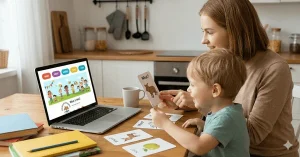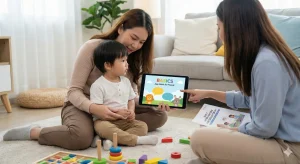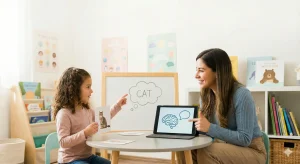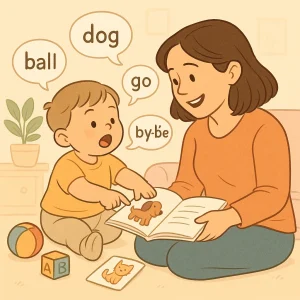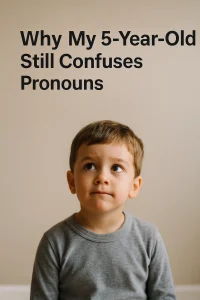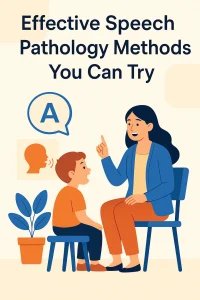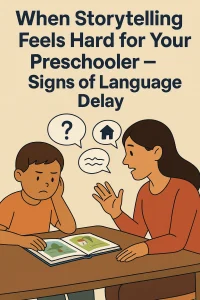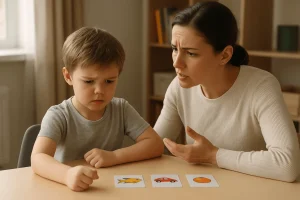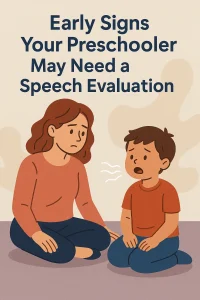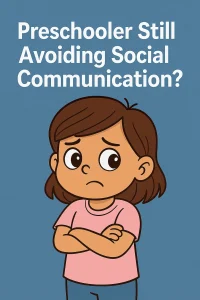How to Teach WH Questions to Toddlers and Preschoolers
By Rajini D
Last Updated: February 8, 2025
Raising a child involves countless questions, both from curious little minds and the adults guiding their growth. Among these, WH Questions for Toddlers — Who, What, When, Where, Why, and How — are essential for early childhood language learning. They help kids expand vocabulary, improve sentence structure, and develop critical thinking. Parents often wonder how to teach WH questions to toddlers or what are some fun WH question activities for preschoolers—and this guide will answer all of that!
Why WH Questions for Toddlers Are Crucial for Early Development
Enhancing Language Skills
WH Questions for Toddlers play a key role in developing language capabilities. Here’s how they help
- Expands Vocabulary: Each WH question introduces new words and concepts, gradually expanding a child’s vocabulary.
- Improves Sentence Structure: These questions encourage more than yes-or-no answers, prompting children to form complete sentences and articulate their thoughts clearly.
- Increases Language Use: Regular use of WH questions in daily interactions gets children accustomed to using language to express ideas, ask for what they need, and describe what they see.
Fostering Cognitive Abilities
WH questions also significantly boost cognitive development in young children:
- Promotes Critical Thinking: Asking questions like “Why is the sky blue?” or “How does the car move?” encourages children to think about causes and effects, enhancing their reasoning skills.
- Enhances Comprehension: These questions make children think about the world in more complex ways, improving their understanding and ability to follow logical arguments.
- Encourages Problem Solving: By dealing with questions that require thought, children learn to solve problems and come up with answers based on their knowledge and observations.
Also read: WH Questions Examples for Kids: How to Teach with Fun Activities
Simple WH Questions for Toddlers
Introducing your toddler to WH questions is a fantastic way to spark curiosity and improve their early language skills. Many parents search for examples of WH questions for toddlers to make learning more interactive. Below, we list common WH questions and fun ways to teach WH questions to toddlers.
WH Questions for Toddlers with Answers
Who Questions & Answers for Toddlers
- Who is that? → That is Grandma.
- Who is coming to visit us? → Aunt Lily is coming.
- Who is your best friend? → My best friend is Emma.
- Who is playing with the ball? → Jake is playing with the ball.
- Who is sleeping in the bed? → The baby is sleeping in the bed.
- Who helps us when we are sick? → The doctor helps us.
- Who teaches you at school? → My teacher, Miss Anna.
- Who brings you presents on your birthday? → My family brings me presents.
- Who is wearing a red shirt? → Daddy is wearing a red shirt.
- Who is sitting next to you? → My sister is sitting next to me.
- Who likes to eat bananas? → Monkeys and I like to eat bananas.
- Who is holding the book? → Mommy is holding the book.
- Who sings songs at bedtime? → Mommy sings songs at bedtime.
- Who can jump the highest? → I can jump high!
- Who is hiding behind the curtain? → My brother is hiding behind the curtain.
What Questions & Answers for Toddlers
- What is your favorite color? → My favorite color is blue.
- What do you see outside the window? → I see a tree and a bird.
- What are you eating? → I am eating an apple.
- What sound does a dog make? → A dog says “woof woof.”
- What do we wear when it’s cold? → We wear a jacket and a hat.
- What happens when you drop a ball? → It bounces!
- What do you use to brush your teeth? → A toothbrush and toothpaste.
- What toy do you like the most? → I like my teddy bear the most.
- What do you want to play with? → I want to play with my blocks.
- What do we do before bed? → We brush our teeth and read a book.
- What do you hear right now? → I hear a bird chirping.
- What is your favorite food? → My favorite food is spaghetti.
- What do you do with a spoon? → I use it to eat.
- What do you see in the sky? → I see the sun and clouds.
- What makes you happy? → Playing with my toys makes me happy.
When Questions & Answers for Toddlers
- When do we eat breakfast? → In the morning.
- When do we go to bed? → At night.
- When do we go to the park? → After lunch.
- When do you brush your teeth? → In the morning and at night.
- When do we wear a raincoat? → When it’s raining.
- When does the sun come up? → In the morning.
- When do you play with your toys? → After lunch.
- When is your birthday? → In June.
- When do we take a bath? → Before bedtime.
- When do you feel happy? → When I play with my friends.
- When do we turn off the lights? → At bedtime.
- When do we go to grandma’s house? → On Sunday.
- When do we sing the “Happy Birthday” song? → On my birthday.
- When do you feel sleepy? → At night.
- When do we say “Good morning”? → When we wake up.
- Where Questions & Answers for Toddlers
- Where is your teddy bear? → On my bed.
- Where do we sleep? → In the bedroom.
- Where do birds live? → In the trees.
- Where is your nose? → Here! (Pointing to the nose)
- Where do we go to buy food? → At the grocery store.
- Where is the sun in the sky? → Up high!
- Where do we keep our shoes? → In the closet.
- Where do fish swim? → In the water.
- Where do you put your toys after playing? → In the toy box.
- Where do we throw the trash? → In the trash can.
- Where is your favorite place to play? → In the park.
- Where do we go when we feel sick? → To the doctor.
- Where do cars drive? → On the road.
- Where do you go to wash your hands? → To the sink.
- Where do cows live? → On the farm.
Why Questions & Answers for Toddlers
- Why do we drink water? → Because it keeps us healthy.
- Why do we wear shoes outside? → To protect our feet.
- Why do we wash our hands? → To keep them clean.
- Why is the sky blue? → Because of the sunlight.
- Why do we need to sleep? → So we can rest and grow.
- Why do birds fly? → Because they have wings.
- Why do we say “thank you”? → To be polite.
- Why do we use an umbrella in the rain? → To stay dry.
- Why do we eat vegetables? → Because they are healthy.
- Why do we wear a hat in the sun? → To protect our head.
- Why do we need to brush our teeth? → To keep them clean.
- Why do we hug our family? → Because we love them.
- Why do cats purr? → Because they are happy.
- Why do we have to share toys? → To be kind.
- Why do we say “excuse me” when we burp? → To be polite.
How Questions & Answers for Toddlers
- How do you clap your hands? → Like this! (Claps hands)
- How do we brush our teeth? → With a toothbrush and toothpaste.
- How does a bird fly? → By flapping its wings.
- How do you open a door? → By turning the handle.
- How do we turn on a light? → By flipping the switch.
- How do you eat with a spoon? → I scoop the food.
- How do we put on our shoes? → By slipping them on.
- How do you say “hello” in a happy voice? → Hello! (With a smile)
- How does water feel on your hands? → Cold and wet.
- How do we clean up our toys? → By putting them in the toy box.
- How does a car move? → It has wheels!
- How do you make a happy face? → Like this! (Smiles)
- How do we play with blocks? → We stack them.
- How do you pet a dog gently? → Like this! (Soft touch)
- How do we wash our hands? → With soap and water.
Also Read: WH Questions for Kids: A Simple Guide to Teaching and Learning
How to Use These Questions
- Who Questions: Start with people they know, like family members or characters from their favorite books. Ask questions like, “Who is that?” when looking at family photos or during a playdate, which helps them make connections between names and faces.
- What Questions: These are great during playtime or mealtime. Questions such as “What is this?” while pointing to objects around the house or “What are you eating?” help toddlers learn to identify and label objects and foods.
- Where Questions: Use these during activities like cleaning up toys or when you’re both looking for a missing item. “Where is your toy?” or “Where did it go?” not only helps in understanding location concepts but also in following simple instructions.
Fun and Engaging WH Questions for Preschoolers
How to Boost Thinking & Language Skills
As children grow into their preschool years, their ability to understand and respond to more complex questions increases significantly. This development makes it the perfect time to introduce WH questions that stimulate deeper thinking and conversation. Below, you’ll find a table of thought-provoking WH questions tailored for preschoolers. These questions are designed to not only enhance language skills but also to nurture curiosity and problem-solving abilities.
WH Questions with Answers
When Questions for Preschoolers (with Answers)
- When do you wake up in the morning? → I wake up in the morning.
- When do we eat breakfast? → We eat breakfast in the morning.
- When do we brush our teeth? → We brush our teeth in the morning and at night.
- When do we go to school? → We go to school in the morning.
- When is it time to sleep? → It is time to sleep at night.
- When do we wear a raincoat? → We wear a raincoat when it rains.
- When do flowers bloom? → Flowers bloom in spring.
- When do we see the moon? → We see the moon at night.
- When do we celebrate your birthday? → We celebrate my birthday once a year.
- When do we hear birds chirping? → We hear birds chirping in the morning.
- When do we put on sunscreen? → We put on sunscreen when it is sunny.
- When do we go to the doctor? → We go to the doctor when we are sick.
- When do we water the plants? → We water the plants in the morning or evening.
- When do we play outside? → We play outside in the daytime.
- When do we turn on the lights? → We turn on the lights at night.
Why Questions for Preschoolers (with Answers)
- Why do we wash our hands? → We wash our hands to keep them clean.
- Why do we wear shoes? → We wear shoes to protect our feet.
- Why do we drink water? → We drink water because our body needs it.
- Why does the sun shine? → The sun shines to give us light and warmth.
- Why do we sleep at night? → We sleep at night because our body needs rest.
- Why do we need to eat vegetables? → Vegetables make us strong and healthy.
- Why do we wear warm clothes in winter? → We wear warm clothes to keep our body warm.
- Why do birds fly? → Birds fly to move from one place to another.
- Why do we say “thank you”? → We say “thank you” to show kindness and gratitude.
- Why do leaves change color? → Leaves change color in autumn because of the weather.
- Why do we go to school? → We go to school to learn new things.
- Why does ice melt? → Ice melts when it gets warm.
- Why do we need to share our toys? → We share our toys to be kind to others.
- Why do we wear seat belts in the car? → We wear seat belts to stay safe.
- Why do we use an umbrella in the rain? → We use an umbrella to stay dry.
How Questions for Preschoolers (with Answers)
- How do you put on your shoes? → I put on my shoes by sliding my feet in and tying the laces.
- How do we brush our teeth? → We brush our teeth with a toothbrush and toothpaste.
- How do birds fly? → Birds fly by flapping their wings.
- How do you make a sandwich? → I make a sandwich by putting fillings between two slices of bread.
- How does a plant grow? → A plant grows with sunlight, water, and soil.
- How do you ride a bicycle? → I ride a bicycle by pedaling and balancing.
- How do we clap our hands? → We clap our hands by bringing them together and making a sound.
- How do we blow up a balloon? → We blow up a balloon by filling it with air.
- How do you open a door? → I open a door by turning the doorknob and pushing or pulling.
- How does water turn into ice? → Water turns into ice when it gets very cold.
- How do we wash our hands? → We wash our hands with soap and water.
- How do you build a sandcastle? → I build a sandcastle with wet sand and a bucket.
- How do we make a rainbow? → A rainbow forms when sunlight passes through raindrops.
- How do you pack your school bag? → I pack my school bag with books, pencils, and lunch.
- How do fish breathe underwater? → Fish breathe through their gills.
Who Questions for Preschoolers (with Answers)
- Who is your best friend? → My best friend is [child’s best friend’s name].
- Who helps us when we are sick? → The doctor helps us when we are sick.
- Who teaches you at school? → The teacher teaches me at school.
- Who cooks food at home? → My mom or dad cooks food at home.
- Who takes care of animals at the zoo? → A zookeeper takes care of animals.
- Who drives the school bus? → The bus driver drives the school bus.
- Who flies an airplane? → A pilot flies an airplane.
- Who wears a firefighter’s uniform? → A firefighter wears a firefighter’s uniform.
- Who brings letters to our house? → A mail carrier brings letters to our house.
- Who makes our clothes? → A tailor makes our clothes.
- Who sings songs for you? → My mom, dad, or teacher sings songs for me.
- Who tells bedtime stories? → My parents or grandparents tell me bedtime stories.
- Who helps you when you fall? → My parents or teacher help me when I fall.
- Who likes to play with you? → My friends like to play with me.
- Who reads books to you? → My parents or teacher read books to me.
What Questions for Preschoolers (with Answers)
- What is your favorite toy? → My favorite toy is my teddy bear.
- What do you like to eat for lunch? → I like to eat sandwiches for lunch.
- What do we use to write? → We use a pencil or a pen to write.
- What sound does a cow make? → A cow says “moo.”
- What color is the sky? → The sky is blue.
- What do we do when we are sleepy? → We go to sleep.
- What do we use to cut paper? → We use scissors to cut paper.
- What do we do when we are happy? → We smile and laugh.
- What do we wear on our feet? → We wear shoes or socks on our feet.
- What do you see in the sky at night? → I see the moon and stars.
- What do you do when you are sad? → I tell someone or get a hug.
- What do we use to drink water? → We use a cup or a bottle.
- What do you like to play outside? → I like to play on the swings.
- What do we use to clean our hands? → We use soap and water.
- What animal has a long neck? → A giraffe has a long neck.
Where Questions for Preschoolers (with Answers)
- Where do birds live? → Birds live in nests.
- Where do we go to learn? → We go to school to learn.
- Where do we sleep at night? → We sleep in our bed.
- Where do fish live? → Fish live in water.
- Where do you put your toys after playing? → I put my toys in the toy box.
- Where do we go when we are sick? → We go to the doctor.
- Where do we buy food? → We buy food at the grocery store.
- Where do flowers grow? → Flowers grow in the garden.
- Where do we go swimming? → We go swimming in the pool.
Learn more: How to Use WH Questions in Speech Therapy – Tips for Parents
How to Engage Preschoolers with These Questions
Parents looking for fun WH questions games for preschoolers will find these especially helpful. These questions are crucial for developing critical thinking, as they push preschoolers to think about reasons and causality. If you’re wondering how to teach WH questions to preschoolers in a fun way, start by using real-life scenarios.
- When Questions: These help children grasp the concept of time and anticipate future events. For example, asking “When do we go to the park?” helps them understand daily or weekly routines, while “When is your birthday?” connects them to special occasions and the concept of aging.
- Why Questions: Such questions are crucial for developing critical thinking. They push preschoolers to think about reasons and causality. For instance, “Why do we wash hands?” links to health and hygiene, while “Why is the sky blue?” can be a great starter to a simple science discussion.
- How Questions: These encourage problem-solving and understanding of processes. Asking “How do you tie your shoes?” promotes independence and motor skills, whereas “How does this work?” can lead to explorations of simple mechanics or electronics.
Integrating WH Questions into Daily Routines
Incorporating WH questions into your daily routine with your child can be a seamless and incredibly effective way to boost language development and cognitive skills. Below, we offer practical tips and fun ideas to help you weave these educational moments into everyday life.
Practical Tips for Parents
Many parents ask, “How do I make WH questions fun for my child?” or “How often should I ask WH questions?” The good news is that integrating WH questions into daily conversations doesn’t have to feel forced or like an extra task. Here are some effective strategies for teaching WH questions to toddlers throughout your day.
- Mealtime Conversations: Use meal times to ask questions like “What are you eating?” or “Why do you like bananas?” This not only makes mealtime more engaging but also encourages children to think about their preferences and express them.
- During Play: While playing with your child, insert questions relevant to the activity. For instance, if you’re building with blocks, you might ask, “What will you build next?” or “Why did you choose that color?”
- Storytime Enhancements: When reading a story together, pause to ask questions about the plot or characters, such as “Who is going on an adventure?” or “What do you think happens next?”
- Outdoor Adventures: Being outside provides endless opportunities for WH questions. Ask “Why is the grass wet?” after a rain or “How does the sandbox feel?” while they’re playing.
By making these questions a part of your regular interactions, you help your child develop critical thinking and communication skills in a comfortable and familiar setting.
Making Learning Fun and Interactive
Parents often look for interactive WH question activities for kids to make learning exciting. Turning question-asking into a game or incorporating it into storytelling makes WH questions for toddlers more engaging and effective
- Treasure Hunt Game: Create a scavenger hunt with clues that involve answering WH questions to find the next hint or the treasure. For example, “Find something where we keep the milk” (Where question) or “What color is the flower in the backyard?”
- Role-Playing Games: Engage in role-play where each character asks the other WH questions. For instance, if playing ‘store,’ the cashier might ask, “What would you like to buy?” or “How will you pay?”
- Interactive Storytelling: Build a story together where you start with a scenario, and your child uses WH questions to determine the direction of the story. For example, “We’re in a magic forest. Who do you think lives here?”
- Art Projects: During craft time, ask questions like “What are you making?” and “Why did you choose these materials?” This encourages creative thinking and decision-making.
Conclusion
WH questions are simple tools that make a big difference in your child’s language and thinking skills. Regularly using questions like “Who is that?” or “Why do we sleep?” helps toddlers and preschoolers learn to speak well and think clearly. Encourage your child every day by asking these questions during play or mealtime. Each question helps them understand the world better and boosts their confidence. Want to learn how to teach WH questions to toddlers effectively? Discover expert strategies, fun WH questions games for preschoolers, and interactive activities at Wellness Hub. Our resources guide you on how to engage young minds effectively. Keep the questions flowing and see your child’s development soar!
Frequently Asked Questions:
1. What are WH questions for kids?
WH questions are queries that start with the words Who, What, When, Where, Why, and How. They are essential for helping children develop language skills, as they encourage more detailed responses than yes/no questions and help kids learn how to think about and describe the world around them.
2. Why should I ask my toddler WH questions?
Parents often wonder, why are WH questions important for kids? Asking WH Questions for Toddlers enhances early language skills, critical thinking, and cognitive development. Using fun WH question activities for preschoolers helps children express their thoughts clearly
3. How often should I ask my preschooler WH questions?
Incorporating WH questions into daily interactions is key. Use them throughout the day—during meals, playtime, and while reading books—to make the most of everyday learning opportunities. This regular practice helps children become more adept at using language and thinking critically.
4. Can WH questions help my child in school?
Yes, mastering WH questions can significantly benefit your child in school by preparing them to participate in discussions, understand lessons better, and follow instructions. These skills are crucial for academic success and social interaction in the classroom.
5. What are some examples of ‘what’ questions I can ask my child?
Simple ‘What’ questions like “What color is your shirt?” or “What did you eat for lunch?” help children learn to identify and describe objects, feelings, and experiences. These questions encourage descriptive answers and help build vocabulary.
6. How do I make WH questions fun for my child?
You can make WH questions more engaging by turning them into a playful activity. For instance, during a walk, make a game of “I spy” with WH questions like “What do you see that is red?” or create a story together where your child answers WH questions to develop the plot.
7. Are WH questions good for children who are shy?
WH questions can be particularly beneficial for shy children as they provide a structured way to engage in conversation. These questions can help shy children practice expressing their thoughts and ideas in a low-pressure environment, which can boost their confidence and communication skills.
8. What if my child doesn’t answer a WH question correctly?
It’s perfectly fine if your child doesn’t always answer correctly. The goal is to encourage them to think and attempt to answer. Offer praise for their efforts, and gently correct them by providing the right answer or guiding them to discover it themselves. This supportive approach helps build their confidence and learning.
9. Can WH questions improve my child’s listening skills?
Definitely, WH questions encourage active listening, as children need to understand the question to provide an appropriate response. This practice enhances their ability to focus, pay attention, and process information, which are critical skills for academic and personal success.
10. Where can I find more resources on using WH questions with toddlers?
Check out Wellness Hub for a wealth of resources tailored to early childhood education. Our site offers practical guides, expert advice, and fun activities designed to make early learning effective and enjoyable for both you and your child.
About the Author:
Rajini Darugupally
M.Sc., Speech-Language Pathologist (9+ years of experience)
Rajini is a passionate and dedicated Speech-Language Pathologist with over 9+ years of experience, specializing in both developmental speech and language disorders in children and rehabilitation in adults. Driven by a desire to empower each individual to find their voice, Rajini brings a wealth of experience and a warm, genuine approach to therapy. Currently, at Wellness Hub, she thrives in a team environment that values innovation, compassion, and achieving results for their clients.
Book your Free Consultation Today
Parent/Caregiver Info:
Client’s Details:
* Error Message
